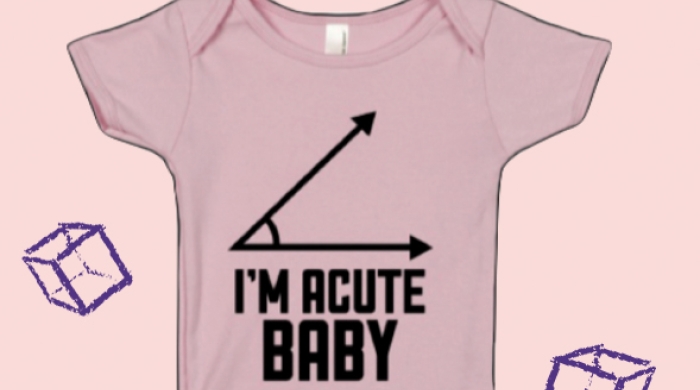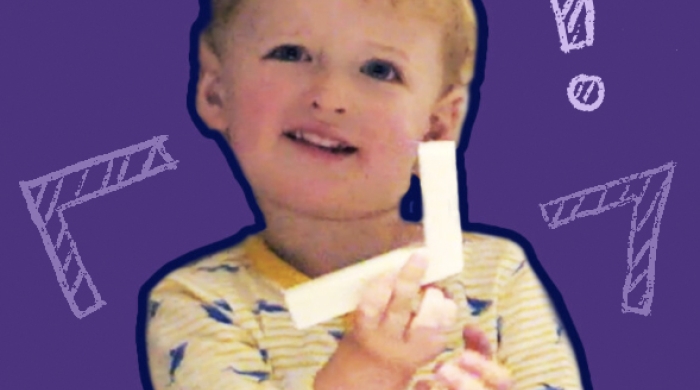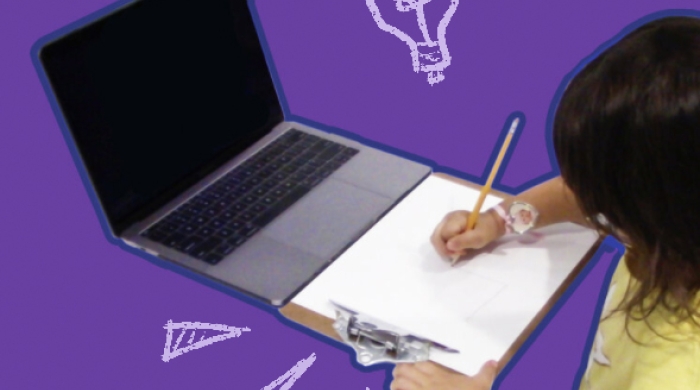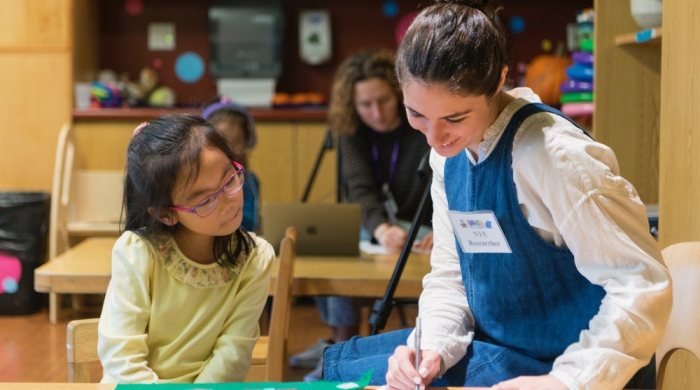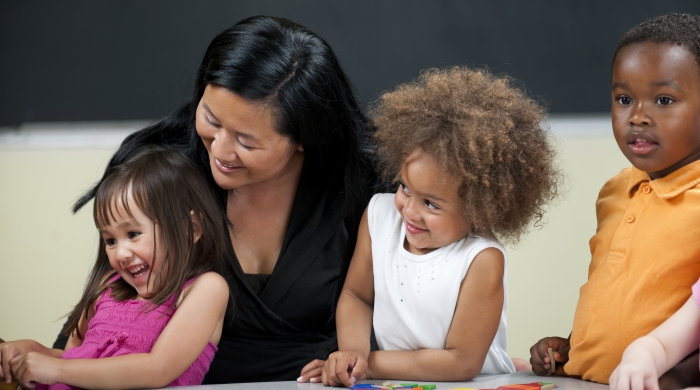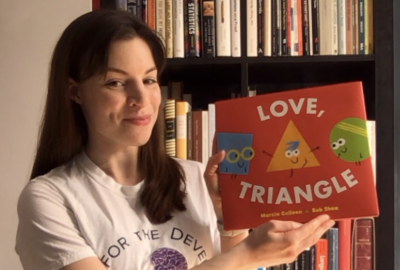
Written by Moira R. Dillon, Ph.D., Assistant Professor of Psychology
Department of Psychology, NYU Faculty of Arts and Sciences
Preschool math curricula around the world are often built on the common-sense idea that young children learn best from adult-led activities that exercise their intuitive cognitive abilities about numbers, shapes, and spaces. Children and their teachers interact with each other, handle the same objects, and communicate face-to-face. But now both educators and parents have had to take on the challenge of teaching preschoolers math from home, equipped only with the untested tools of remote learning.
Little research has directly compared the effectiveness of in-person vs. remote learning on preschool children’s school-readiness in math. That said, now is a great time for researchers in psychology and education to focus on this very question. Researchers can evaluate what kinds of cognitive abilities are expressed and measurable in the noisy, real-world home environments of everyday life via online research studies. Moreover, researchers are motivated to put remote learning to the test, comparing it to in-person learning, to try figure out whether and how it might be possible to make remote learning effective and sustainable as we look to the future of preschool pedagogy.
My research lab, the Lab for the Developing Mind in the Department of Psychology at NYU, focuses on exploring the origins and development of those unique cognitive abilities that make us human. Primary among these abilities is our capacity for understanding symbolic math, in particular geometry. Not only does geometry pervade everyday life from very early on in development, but geometry lies at the foundation of much of societies’ advanced science and technology, not to mention our art and culture. We typically welcome families to our lab on the NYU campus near Washington Square Park, and together we conduct short, fun studies in highly controlled settings. We also collaborate with the National Museum of Mathematics, inviting the museum’s young visitors to participate in research studies on site in one of the museum’s classrooms. Since this past March, however, our lab, like many other research labs across the globe, has suspended all in-person studies.
So, how can families and researchers work together to support our preschoolers and their math learning now? Here are a couple of ideas for how families can bring STEM home and even to contribute to science, so that children can have fun and learn and researchers can test and improve STEM curricula for the future.
- Read math- or science-related children’s books as a family. Some of my favorites include “Nothing Stopped Sophie” and “Love, Triangle.” You can even join me for a reading of “Love, Triangle” thanks to author Marcie Colleen and publisher HarperCollins, who have allowed me to share a reading of this book on YouTube.
- Sign up for some of the preschool programming offered by the National Museum of Mathematics. Classes are pay-if-you-can and first-come, first-served. My lab and the museum are planning a collaborative preschool program to test the effectiveness of in-person vs. remote learning on school-readiness in geometry. This program will be available to families for free as part of a randomized trial.
- Finally, contribute to science and help researchers like me and others understand how young children think, perceive, and learn in the complex home environments of everyday life! Our lab has several studies available for infants and children accessible to families at any time, without an appointment. All of our studies target developing intuitions about the spatial phenomena at the heart of school math. Indeed, you can now access lots of research studies online on a wide range of topics, from neonatal imitation to how children form social groups. Lookit, The Online Child Lab, Discoveries in Action (directed by my colleague, Dr. Marjorie Rhodes), and Children Helping Science are all great places to find online research studies and contribute to science.
Teaching math from home is a new challenge for many families, just as studying children at home is a new challenge for scientists. Working together, we can improve both education and research. Labs like ours have created engaging activities for families, and by participating in them, families help us advance science!
Bring STEM Home by participating in online research studies with your child!
Baby Euclid
Ages: 6.5-7.5 Months
Duration: 10 Minutes
What We're Studying: How do babies perceive shapes?
Shapes Galore
Ages: 10.5-13.5 Months
Duration: 10 minutes
What we're studying: How do babies learn the names of shapes?
Let's Draw!
Ages: 4-9 years
Duration: 20 minutes
What we're studying: How do children draw the world around them?
Learn More
Research Partnerships: Dr. Dillon & MoMath
Dr. Moira Dillon and Cindy Lawrence, Executive Director of the National Museum of Mathematics, received an IHDSC Seed Award to recruit children for interactive in-museum experiments to investigate how children reason about the general properties of geometric figures. Dillon and Lawrence talk about the process of developing their research partnership.
Do Science from Home!
Dr. Marjorie Rhodes, associate professor of psychology, provides resources from the Conceptual Development and Social Cognition lab that can help families be better science educators at home in light of COVID-19.
Education and Child Development
IHDSC researchers examine children's social-emotional development, observe classroom interactions, enhance parent decision-making, and improve educational opportunities for all children.


